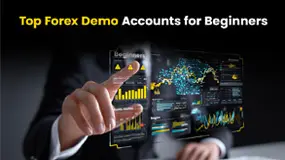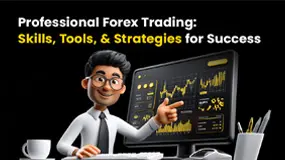简体中文
繁體中文
English
Pусский
日本語
ภาษาไทย
Tiếng Việt
Bahasa Indonesia
Español
हिन्दी
Filippiiniläinen
Français
Deutsch
Português
Türkçe
한국어
العربية
Trade Fights Are Heating Up—What Happens Next?
Abstract:Global financial markets have become increasingly reactive to even minor developments in international trade talks.

Hints of progress or speculation around restrictions can cause swift and sometimes sharp swings across equities, currencies, and commodities. Stocks have seen intraday gains erased as optimism gives way to caution.
The euro-dollar pair, for example, has fluctuated notably amid conflicting signals. Meanwhile, energy prices have surged on hopes of increased demand tied to trade normalization. These reactions show just how sensitive markets remain to the uncertain and fast-shifting landscape of global trade negotiations.
Plenty of Talk, Few Tangible Results
While negotiators from multiple countries have voiced a willingness to cooperate, the road to finalized agreements remains murky. In many cases, statements of optimism are tempered by acknowledgments of unresolved differences.
Meanwhile, some regions are quietly preparing fallback strategies, including potential trade restrictions, should talks stall. Despite high-level meetings and diplomatic visits, progress has so far been more symbolic than substantive.
Investors are looking beyond positive rhetoric and waiting for binding, enforceable outcomes before adjusting expectations.
Beyond short-term volatility, prolonged trade disputes are reshaping the underlying framework of the global economy. The uncertainty is prompting companies to reevaluate production hubs, rethink cross-border investments, and brace for regulatory shifts. Sectors like manufacturing, energy, and raw materials are especially exposed to these pressures.
In an already fragile macroeconomic climate, unresolved trade tensions could further complicate efforts to maintain stability and growth, particularly if inflationary pressures rise. As the world waits for clarity, economic headwinds may strengthen before meaningful resolutions arrive.

Disclaimer:
The views in this article only represent the author's personal views, and do not constitute investment advice on this platform. This platform does not guarantee the accuracy, completeness and timeliness of the information in the article, and will not be liable for any loss caused by the use of or reliance on the information in the article.
Read more

Top 5 Warning Signs- Why You Should Avoid MTrading Broker?
Before choosing a forex broker, it's crucial to spot red flags that could cost you. MTrading has raised concerns among traders, including delayed withdrawals, poor customer support, and questionable transparency. Users also report issues like slippage and platform glitches, which can harm your trading performance. In this article, we highlight the top 5 warning signs that explain why you should avoid MTrading broker and choose a more reliable alternative.

Top Forex Demo Accounts for Beginners
In this guide, we will explore the top forex demo accounts for beginners. We aim to help you find the best platform for your trading practice. Let's dive into the world of forex demo accounts and discover the best options available.

Professional Forex Trading: Skills, Tools, & Strategies for Success
In the vast and fast-paced world of financial trading, the foreign exchange (forex) market reigns as the largest and most liquid market globally. Trillions of dollars are traded daily, as currencies fluctuate due to economic indicators, geopolitical events, and market sentiment. But what exactly defines a professional forex trader? What skills, strategies, and tools are essential for success in the highly competitive currency market? In this article , we’ll explore everything you need to know.

Beware of Forex Fraud: FCA Exposed Scam Brokers
Forex trading continues to attract global investors, but with its growing popularity comes an increase in fraudulent activity. UK’s Financial Conduct Authority (FCA) has recently exposed several unregulated and scam forex brokers targeting traders. Checkout the list of scam brokers below.
WikiFX Broker
Latest News
Datuk Seri Linked to RM8.4 Million Gold Investment Scam Under Police Probe
The Psychology Behind the Ascending Triangle Pattern in Forex
Charles Schwab Forex Review 2025: What Traders Should Know
The Global Inflation Outlook
What WikiFX Found When It Looked Into XS
ASIC Regulated Forex Brokers: A Comprehensive 2025 Guide
Is TradeEU Reliable in 2025?
Professional Forex Trading: Skills, Tools, & Strategies for Success
Investing in OnFin? Absurd Withdrawal Conditions & Trade Manipulation May Spoil Your Trading Mood
How Commodity Prices Affect Forex Correlation Charts
Currency Calculator


